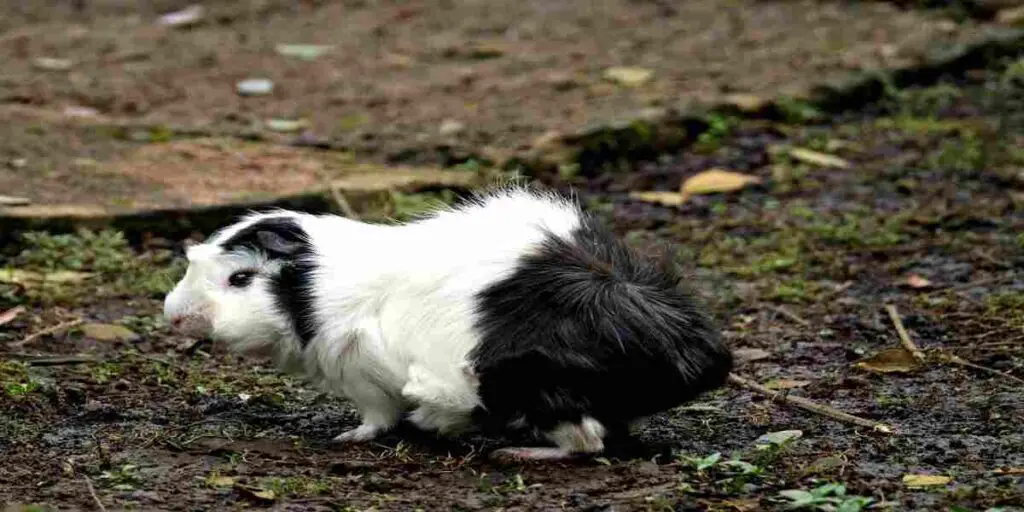
Guinea pigs are herbivores that need to eat a balanced diet rich in fiber, vitamins, and minerals to maintain their health and well-being. Water is also essential for guinea pigs, as it helps regulate their body temperature, digest their food, eliminate waste, and prevent dehydration. While fresh, clean water is the best option for guinea pigs, some may wonder if coconut water is a suitable alternative. In this blog post, we’ll explore the topic of whether guinea pigs can drink coconut water, and what you need to know to keep your furry friend healthy.
What is coconut water?
Coconut water is the clear, slightly sweet liquid found inside young green coconuts. It differs from coconut milk, which is a creamy, white liquid made from grated coconut flesh. Coconut water is a popular drink in the tropics, as it is a good source of electrolytes, vitamins and minerals, and is low in fat and calories. Some believe that coconut water may have various health benefits, such as improving hydration, digestion, and immune function, and reducing blood pressure, cholesterol, and oxidative stress.
Is coconut water safe for guinea pigs?
Coconut water is not toxic to guinea pigs, and in small amounts, is unlikely to cause any harm. However, coconut water is not a natural or necessary part of a guinea pig’s diet, and it may have some drawbacks that make it less suitable than water or hay. For example, coconut water may contain too much sugar, sodium, potassium, or other substances that can upset the delicate balance of the guinea pig’s digestive system, causing diarrhea, bloating, or other health problems. , or may interfere with the absorption of essential nutrients.
What are the benefits and risks of coconut water for guinea pigs?
Coconut water can offer some benefits for guinea pigs, such as hydration, providing nutrients, and antioxidants, and promoting a healthy coat, skin, and immune system. However, these benefits are largely speculative, and there is little scientific evidence to support them. On the other hand, coconut water may pose some risks to guinea pigs, such as indigestion, dehydration, or electrolyte or mineral imbalances. Furthermore, coconut water may not be fresh, pure, or suitable for guinea pigs, especially if it is packaged or processed with additives, preservatives, or other chemicals.
How much coconut water can guinea pigs drink?
If you want to offer coconut water to your guinea pig, it’s best to do so in moderation and under supervision. You can add a small amount of coconut water to a shallow dish or bowl, and see if your guinea pig likes it. If your guinea pig shows interest in coconut water, you can offer a teaspoon or less daily, and see how your guinea pig reacts to it. If your guinea pig shows any signs of distress, such as diarrhea, bloating, or lethargy, you should immediately stop giving coconut water and consult a veterinarian.
What are the alternatives to coconut water for guinea pigs?
The best and most natural source of water for guinea pigs is fresh, clean water from a bottle or bowl. You should change the water daily, and make sure the water source is not contaminated, stale, or frozen. You can also offer your guineas.
Also Read:
- Guinea Pig To Drink Water
- Guinea Pig Drink From Water Bottle
- Guinea Pig Not Drinking Water From Bottle
FAQs
Is coconut good for guinea pigs?
Coconut is not recommended for guinea pigs. While the coconut is high in fiber and healthy fats, it is also high in sugar and can cause digestive problems for guinea pigs. Additionally, coconut meat and milk are high in potassium, which can lead to electrolyte imbalances in guinea pigs.
Can guinea pigs drink anything other than water?
Water is the best drink for guinea pigs, and it should be available to them at all times. Although guinea pigs can drink some other liquids, such as diluted fruit juice or herbal tea, they should be given in moderation and not as a substitute for water.
What water is best for guinea pigs?
Fresh, clean water is the best choice for guinea pigs. Tap water is generally safe for guinea pigs, but it should be dechlorinated and free of any contaminants. Bottled spring water or filtered water are also good options. It is important to change the water in the guinea pig’s bottle or bowl daily to prevent bacterial growth.
How do you hydrate a guinea pig?
To hydrate guinea pigs, make sure they have access to fresh, clean water at all times. Additionally, offer them a variety of fresh fruits and vegetables that are high in water content, such as cucumbers, watermelon, and lettuce. You can also offer small amounts of diluted fruit juice or herbal tea to encourage them to drink more.
What is poisonous for guinea pigs to eat?
Some foods that are safe for humans can be toxic to guinea pigs. Foods to avoid include chocolate, caffeine, onions, garlic, avocado, rhubarb, tomato leaves, and any plant from the nightshade family. Additionally, foods high in sugar or fat, or that are excessively processed, should be moderated or avoided altogether.
Conclusion
While coconut water is often touted for its hydrating properties and nutritional benefits, it is not recommended as a regular source of hydration for guinea pigs. Guinea pigs need clean, fresh water daily to stay healthy and hydrated. While a small amount of coconut water may be fine as a remedy on occasion, it should not be used as a substitute for water. Additionally, flavored or sweetened coconut water should be avoided, as it can be harmful to guinea pigs. If you are unsure about what foods and beverages are safe for your guinea pig, it is always best to consult a veterinarian.
